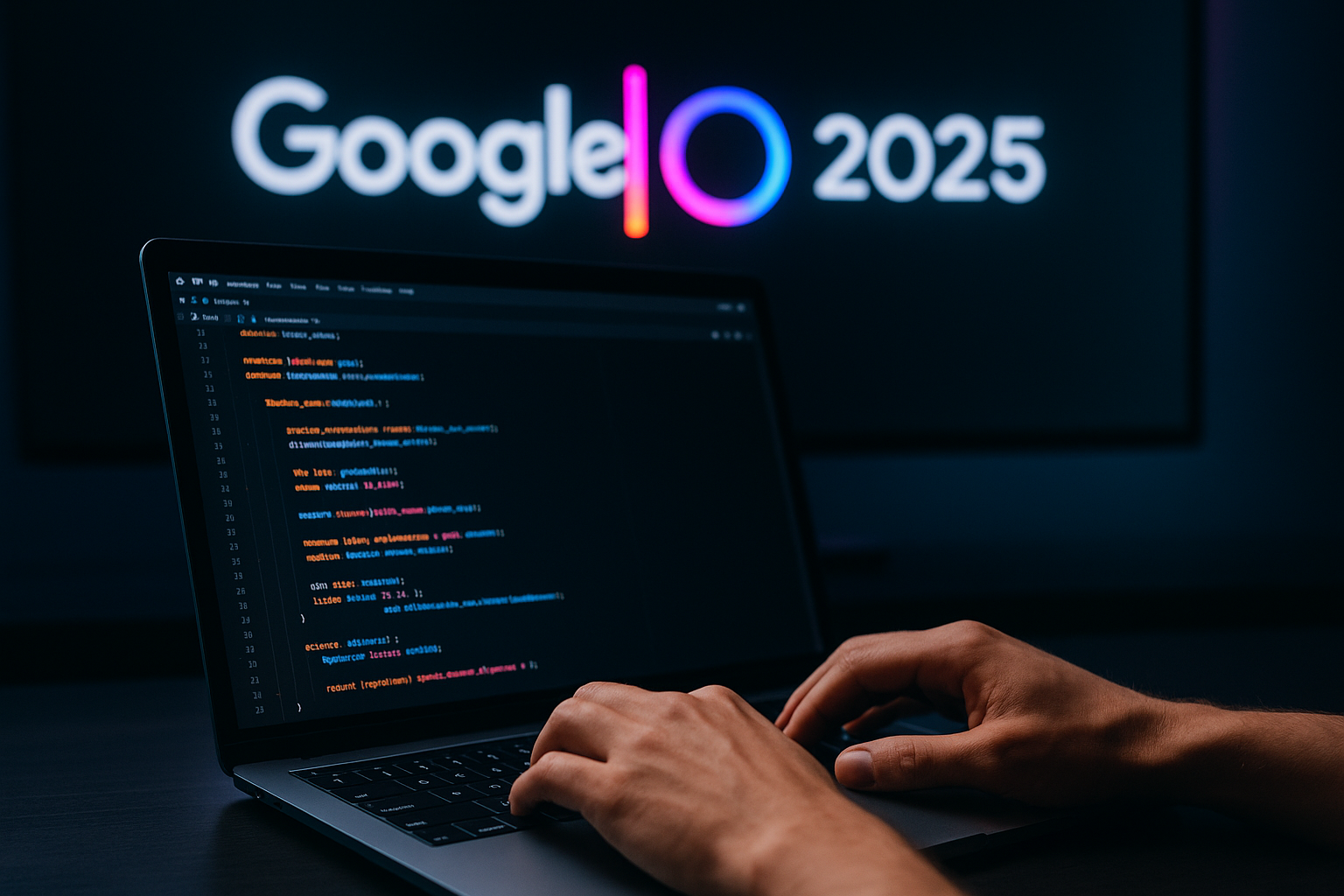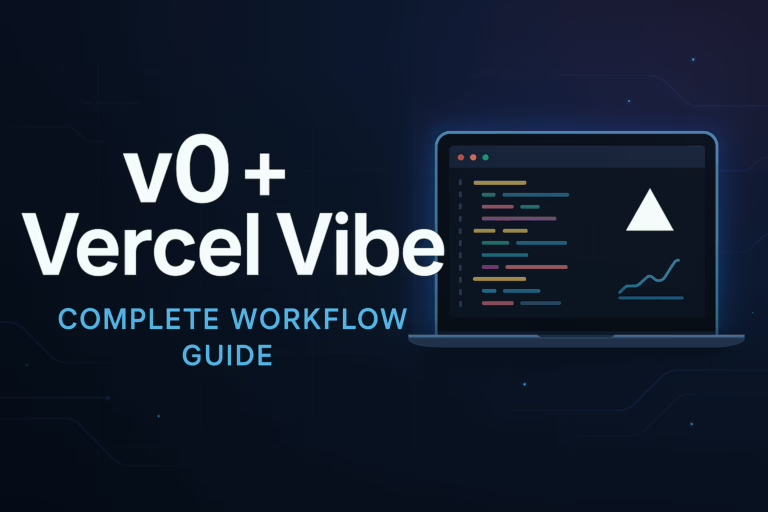Google I/O 2025: Revolutionary Announcements Shape the Future of AI Software Development
Every year, Google I/O pulls in the curious and the passionate from all corners, devs, tech lovers, and industry watchdogs alike. But 2025? This year’s event feels different. With whispers and leaks swirling around AI breakthroughs, eyes are glued to Mountain View, California, as Google prepares to lift the curtain on a new era of AI software development. What’s fueling the buzz? The debut of an advanced Google AI agent, the latest deep learning leaps from Google DeepMind AI, and a tantalizing new horizon for immersive tech, just to start.
1. Google I/O 2025: Setting the Stage for AI-First Innovation
Once upon a time, Google I/O was a gathering strictly for coders. Now, the annual event has outgrown its roots. It’s become a global showcase for everything innovative, from AI coding assistants to consumer hardware and futuristic apps. Anticipation is building as insiders hint this year’s focus will extend beyond the usual: expect bold moves in AI integration, sneak peeks at Android 16, and demonstrations of AI-powered immersive experiences powered by Gemini AI chatbot and Android XR glasses AI.
The bigger picture? As artificial intelligence matures, it’s more than just a talking point. Today’s software developers look to Google’s emerging tools for new ways to code, manage workloads, and boost productivity. There’s no glossing over it: the stage is set for announcements that could shift how software gets built.
2. Introducing Google’s Next-Gen AI Agent for Software Development
Here’s the scoop slipping out before the keynote: The Information confirms that a Google AI agent announcement at I/O 2025 is on tap. This isn’t your run-of-the-mill code autocomplete. According to sources who saw internal demos, Google’s AI agent steps in as a genuine coding collaborator, handling everything from responding to engineering tasks in real time to creating thorough documentation right in the moment.
- How does Google’s AI agent assist coding? Think less “typing assistant” and more “partner at the whiteboard.” It jumps into tasks, deciphers context, and helps engineers untangle tricky problems faster.
- Key selling points: Seamless integration into existing workflows, improved accuracy, and a knack for turning rough code into polished, fully documented solutions.
Early feedback, at least from those looping in through the grapevine, suggests this AI-powered code documentation assistant from Google could set new standards in the world of AI in software engineering. As for Google’s official comment? They’re keeping their cards close to the vest, naturally fueling even more speculation.
3. Inside Google DeepMind’s AlphaEvolve: The AI That Can Invent Algorithms
Now, let’s talk about the showstopper: AlphaEvolve AI from Google DeepMind. Forget simple code suggestions, AlphaEvolve is built to discover entirely new algorithms and mathematical solutions nobody has programmed before. Here’s what stands out so far:
- Boosting efficiency at Google scale: AlphaEvolve created a novel scheduling solution for Borg, Google’s massive cluster management system, reclaiming 0.7% of the company’s computing resources, an astronomical win given Google’s infrastructure footprint.
- Breaking records in math: It invented a new approach to multiplying 4×4 matrices, shattering a mathematical record that stood untouched for 56 years.
- Rewriting hardware design: Parts of Google’s Tensor Processing Unit (TPU) designs were optimized by AlphaEvolve, with validation from chip engineers. The results? More efficient, faster AI model training for products like Gemini AI chatbot.
What puts AlphaEvolve AI ahead of the pack is its evolutionary model. Instead of spitting out code based on known patterns, it uses an interplay of Gemini language models, testing, and carefully scored iterations to reach novel solutions. It’s like watching generations of digital “life” solve problems, finding paths no one else on Earth thought of.
From Open Source to AI Ecosystems: Will Google Democratize These Breakthroughs?
But here’s a question you might already be pondering: If these incredible advances are locked inside Google, how does the rest of the world get to play? That’s where the conversation around open source, APIs, and AI ecosystems really heats up at Google I/O 2025.
Think back to when Google open-sourced TensorFlow and Tensor Processing Units revolutionized machine learning research. Will we see something similar this year? There’s mounting anticipation that Google might offer select capabilities of these new AI agents, maybe entry-level APIs for their AI software development tools or sandboxed versions of AlphaEvolve, for the developer community at large. Why does this matter? When companies open their doors, even a crack, it serves as jet fuel for global innovation. Startups, students, and tinkerers suddenly have the power to build, iterate, and even discover their own groundbreaking solutions, no billion-dollar budget required.
By creating an ecosystem where human creativity and Google-level AI go hand in hand, the impact extends way beyond Google’s internal deployments. We could see everything from new educational apps and healthcare tools to next-gen smart assistants and creative media, all powered by these advanced technologies. If Google takes this democratizing leap, the ripple effects could reach every corner of tech and society, giving more people the chance to shape, not just consume, the future of AI-powered software engineering.
4. AI Everywhere: Gemini, Android XR Glasses, and Beyond
Wearables are about to get smarter. This year’s demos reportedly include the integration of Gemini AI with Android XR devices, bringing contextual, conversational AI to XR glasses and headsets. Imagine contextual overlays, interactive learning, or live help layered over your reality via Android XR glasses AI.
If you’re a developer, or just someone who gets a kick out of new gadgets, this signals a world where immersive computing and Google AI integration aren’t pie-in-the-sky, but part of everyday life. Expect more at I/O about how AI will weave its way into both routine tasks and creative workflows across the Android 16 ecosystem.
5. Next-Gen AI Software Development Tools and Features: What’s Rolling Out
Here’s something quietly game-changing: Google is working on new AI-driven tools that let you upload code, images, and documents into the increasingly powerful Gemini Deep Research suite. Why does this matter?
- Enhanced file upload in Deep Research: Enables more tailored and nuanced research outputs for developers and professionals.
- Productivity boosters: AI-driven code completion, documentation tools, and collaborative development features are ready to change not just how code gets written, but how teams work together.
There’s a genuine sense in the community that collaborative human-AI software development tools by Google are about to hit their stride, the kind of leap that brings real, tangible impact to the way we build, test, and deploy code.
6. Google DeepMind’s Research Impact: From Data Centers to Scientific Frontiers
Nothing wins over skeptics quite like results. AlphaEvolve’s solutions aren’t stuck in labs, they’re powering Google’s internal systems already. Here’s why engineers and scientists are paying close attention:
- Borg Optimization: AlphaEvolve’s resource allocation code continuously boosts Google’s cluster efficiency, unlocking power that would otherwise sit idle.
- TPU Efficiency: Hardware improvements discovered through AI now train language models up to 23% faster, translating to lower costs and greener computing.
- Mathematical breakthroughs: In addition to the matrix multiplication records, AlphaEvolve tackled century-old puzzles like the “kissing number problem,” outpacing human mathematicians in certain high-dimensional scenarios.
Looking ahead, Google is preparing an Early Access Program for academic researchers, with hopes that these tools can change fields from material science and drug discovery to logistics, networking, and beyond.
Conclusion: What Google I/O 2025 Signals for the Future of AI Software Development
The announcements coming from Google I/O 2025 go well beyond flashy product reveals. They point toward a new way of thinking about AI in software engineering, where the boundaries blur between human creativity and machine-driven discovery.
Whether it’s the new Google AI agent transforming everyday workflows, AlphaEvolve AI’s jaw-dropping record-breaking solutions, or the creative spark behind Gemini AI chatbot and immersive XR features, one thing is clear: Google is betting that tomorrow’s code will be built on a seamless, collaborative relationship between humans and AI. If you’re a developer, researcher, or even a curious onlooker, this is the moment to watch. The tools launched this year could be the ones that shape the next decade of tech, and, frankly, that’s no small feat.







